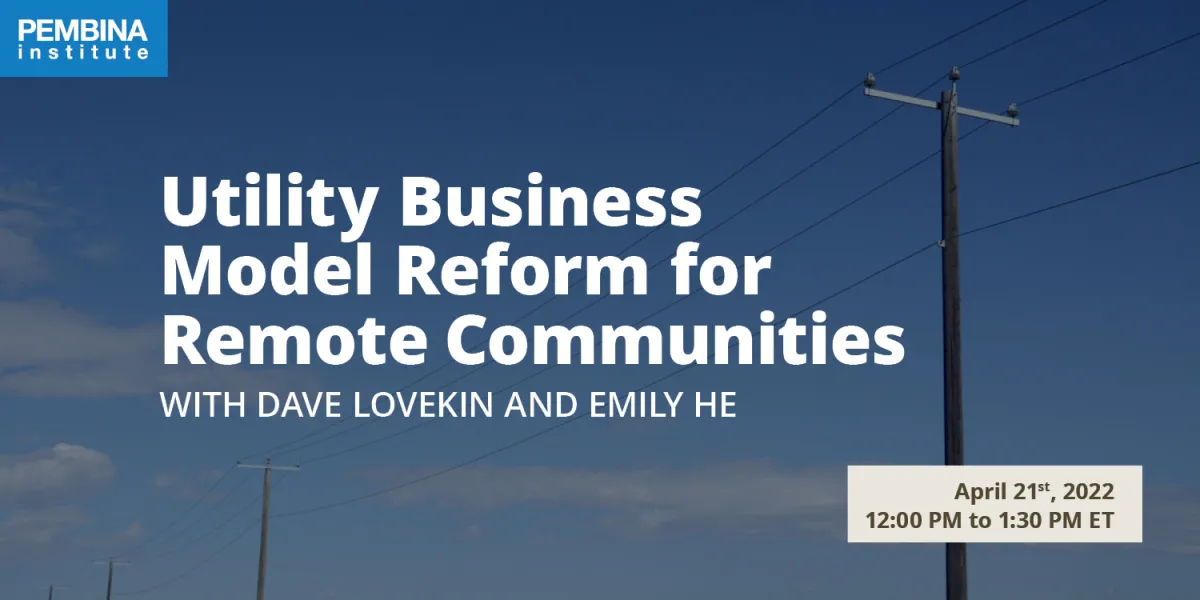Update: The webinar has ended. Scroll down for the video recording.
Utility business models, which dictate how utilities earn revenue and influence utility priorities and actions, are currently not designed to encourage the progressive and accelerated changes needed to advance the clean energy transition in Canada’s remote communities. In this webinar we will discuss options for utility business model reform to address changing climate policy, energy innovation, increased customer inclusion in the energy sector, and the prioritization of Indigenous-led clean energy projects.
The Pembina Institute invites those interested in utility business model reform to unlock opportunities for clean energy projects in remote communities to join us as we discuss long-term sustainable policy and regulatory solutions.
Speakers
 Dave Lovekin
Dave Lovekin
Director, Renewables in Remote Communities
Dave Lovekin is the director of the Pembina Institute's work on renewables in remote communities. In his years with the Institute — Canada’s leading energy think tank — he has managed numerous corporate, community and government projects focusing on research and analysis to advance energy efficiency and renewable energy solutions in Canada.
Dave has worked with stakeholders in small businesses, industry, indigenous communities, government and non-governmental organizations on projects related to shifting focus from non-renewable to renewable energy technologies (including solar PV, wind, biomass, biogas and biofuel technologies, geothermal and overall energy efficiency solutions). He has conducted numerous life cycle assessments for various energy technologies and is certified to conduct greenhouse gas accounting through the Greenhouse Management Institute.
He holds a master's degree in systems design engineering from the University of Waterloo and is currently on the WWF Arctic renewable energy expert committee and the advisory committee for NRCan developing standards for biomass fuels and equipment in Canada.
 Emily He
Emily He
Analyst
Emily He is an analyst with the renewables in remote communities program at the Pembina Institute. At Pembina, Emily’s work focuses on unlocking opportunities for and addressing barriers to the clean energy transition in Canada’s remote communities.
With a background in engineering consulting, Emily has contributed to renewable energy and energy efficiency projects in over 25 countries, several of which being located in remote and/or northern climates. Her expertise ranges from performing prefeasibility studies to due diligence assessments for stand-alone and hybrid power systems (including solar PV, wind, waste-to-energy, and batteries).
Emily holds a bachelor’s degree in environmental engineering from the University of Waterloo.
